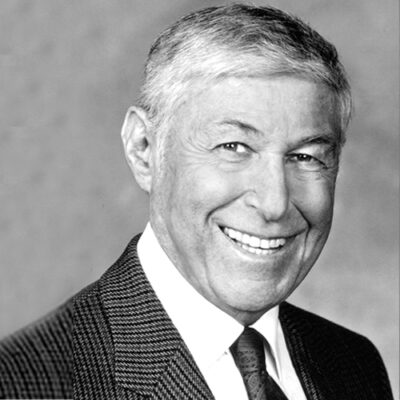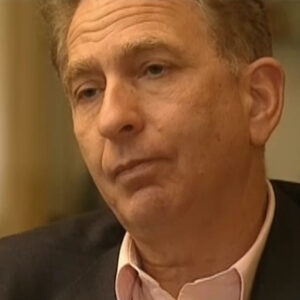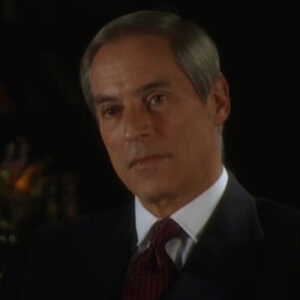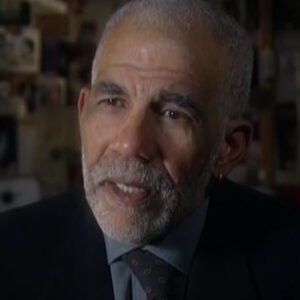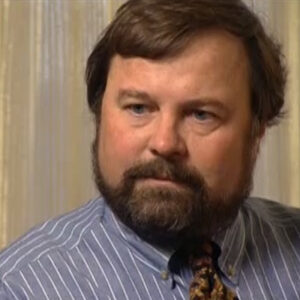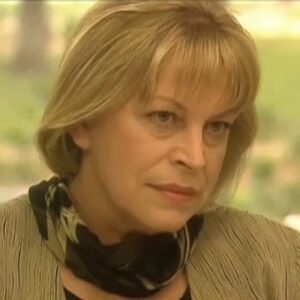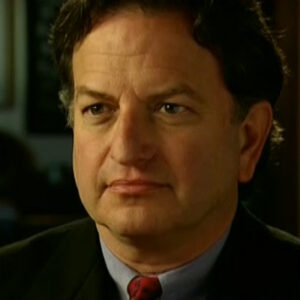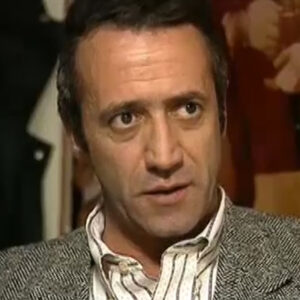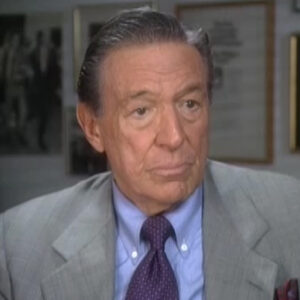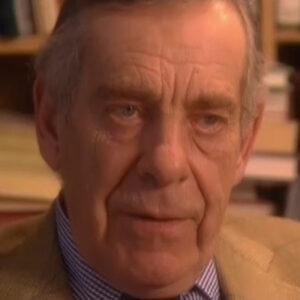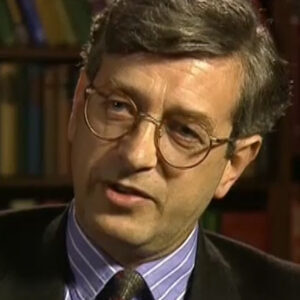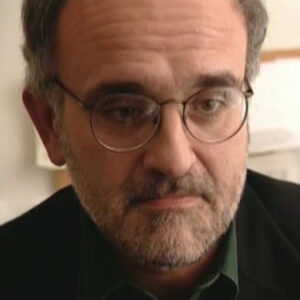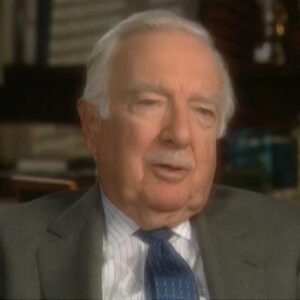Speaker Tell me your name, please. To begin with Stephen Milne. Am I alone? And how long have you been at 60 Minutes.
Speaker I worked on the nineteen seventy one to nineteen seventy three seven 1970 1973. And then I did a few sort of freelance jobs I think in nineteen sixty nine you said 79.
Speaker So yes, 1970, 71. I started and then I went off and did other things for a while and I came back and I’ve been full time on it since 1985.
Speaker And you’re an editor here. Yeah. Well I’m kind of curious. You know, you really know Dayenu. It’s T7 at this point.
Speaker Sometimes it tastes. You said taste. Yes. I mean, do you cut with that in mind? Very often? Yes. I mean, we often things that we worry about that he might not like or we know from long experience that he will likely perhaps won’t like, but I wouldn’t say I wouldn’t have him in mind. I mean, there are certain specific areas. I mean, we don’t say this story will be done in such a way that it will be please don’t we try to make the story work, make the story as good as it can be, and then we think that will please him. And we hope. What was the first story that you worked on, 60 Minutes of the first producer? What was was Bill McClure, and he did a story about bullfighting. I think that was in the second season, that which was on the air. And it was a correspondent who only did one story at that point do a sort of guest spots. It was sort of very early in the broadcast history.
Speaker And was there anything he was done involved in it to come here and the screen, whatever?
Speaker No, he didn’t come over so much in those early days. I mean, Bill would invariably take the film to New York and screen it there. So I wasn’t involved in that until much more quite a lot more recently when he you know, in an electronic era of tape production, he became came in much more used. He’s been coming over more and more often since eighty five.
Speaker And what’s it like when Dan comes here?
Speaker Very good, I think generally I mean, give me an example of a story that that you have done with sort of running around here in the editing room with you.
Speaker Well, one sort of thing we often have is the search to find the great opening sequence. And this is a common sort of thing. And we hit around of producer has an idea, maybe the correspondent has an idea what would be a great way to start, Don. Never bisnis. He always has a idea. This is a great sound bite. Or we’ll start with this picture of someone doing something exciting or whatever it is. It’s usually the most unexpected thing that no one has ever thought of. And we’ve had it. I’ve had him come and discuss within an hour five or eight different opening sequences. And we usually start off on a black tape and said for a bit of that in, oh, no, doesn’t work, try something else and so on. And so it goes. So probably in a couple of hours we found something that we think is a good starting point and that’s why and how it goes. Instead of thinking editorially and looking at script, Don will look at tape or film. He’s not interested in going through endless pages of script with a correspondent or producer. He like to get involved immediately in the film. What’s what’s there? What can I see? What can you show me? That’s going to be interesting. And as soon as he sees something, he begins to think of what could be said. But it works the other way round from the script approval process.
Speaker The idea that everything is driven by looking at a paper Don doesn’t really buy that looks at paper later when the fix, when it’s a matter of making a fix, looks at the paper in detail, but not at the beginning. And I think that’s a great strength and it’s a very good way, a good way to work.
Speaker Have you done a crash with done recently?
Speaker Um, we did a lot, quite a few last season. We’ve been doing them pretty consistently here for, I should say, five, five or six years. He’s done you know, he comes over three to three or four year perhaps.
Speaker Why don’t you give me an example or tell me a story about which you think is the most interesting crash story I’ve done in London? Oh, yeah. I can take a second man. I’m not sure that.
Speaker I’m trying to think.
Speaker OK, did you work? Is it called Semi Semipalatinsk? Yes, yes, yes, I talk about that story.
Speaker Yeah, this was a story that I noticed a channel for British TV team made a slightly similar attempt at this story.
Speaker And in fact, they covered some of the same ground. And we noticed I noticed this and recorded this off air. And we had looked at it with Jean and we decided this would be an interesting thing to do. So I went out there for about two weeks to go to those sites that you saw when you screened it at that lake and some of those test sites and so on, and ran into most of not all of but many of those victims of the site and so on. And then we I came back and we went back about two months later with ad and shot stories. So we had we had all pretty well nailed down as far as we could. And that very good young doctor who talked English, we didn’t find him on that first trip. We sort of. But we had we had a lot of problems with the locals and, you know, not coming through with equipment and transport, that kind of stuff. As it was. They thought that because of the chaotic nature of the country, really it’s unusual for an editor to go on vacation. Well, I was working as an associate producer at that time and I sort of thought of the story. And I’ve done several other stories on that basis. You know, that other people make a contribution. They can go and do it, you know? So that’s that’s certainly a possibility that we don’t have any strict rules about that sort of thing here.
Speaker That’s very nice. That is unusual. It is unusual.
Speaker I unfortunately, I haven’t been in preinterview, so I’m sitting here kind of cold. I’m wondering what are the things? And I sort of have to sort of scrape your mind to try to figure out. And have you ever had an experience of working with any other executive producer in the editing room, the way down to a limit on other CBS broadcasts?
Speaker Um, yes. Just to smaller, smaller extent. The vast majority are much more script driven and more interested in what’s on paper and on the page and are not, frankly, that interested in what people’s characters are like or whether they’re believable and all sorts of textured things that Don usually is very interested in. So there’s a very, very different approach, a very different approach. And and also they’re much less inclined to be to throw ideas out and expect everyone to sort of react to them. I tend to be more sort of driven by a pre-existing plan. Wilston will literally start anywhere in the store if he decides that that’s a good place to start it, which can be very effective. I mean, but it may take a while to find exactly what part really works.
Speaker You know, is there a lot of give and take in working with Dan in the editing room?
Speaker Up to a point, yes. I mean, you certainly can say if you think something boring or bad or it won’t work, but sometimes things are just sort of you to sort of brush aside objections like I mean, he’s not bothered about matters of continuity. And if you have a sequence where someone arrived and they met and they made a speech and they even had a something, you know, you could start off with a scene where they’d actually finished the speech and in and end up with the scene when they arrive. I mean, that might happen, but you can put it together in such a way you don’t actually notice that too much unless you’ve been at the event. And that’s sort of, you know, pretty easy going. But the way we work would be to sort of grab a particular sequence and write a paragraph of script, grab another sequence, sound another paragraph, the script and the editing and scripting going along in sequence together, not sitting down with the whole finished script and editing it sort of done as you go along.
Speaker That’s the way Don likes to work. So.
Speaker So, yes, exactly. At this rate. Exactly. So he’ll say, let’s meet this guy and then how do we get from this guy to this woman? Well, he’ll sit down and go over the computer and write or typewriter and write something, usually a typewriter. I don’t think he’s big on the computer, but he’ll get hold of the old royal typewriter in there and bang out something, come rushing back with three line and say that will be and that’s how it will go. And then then he’ll give it to the correspondent who may well or may not rewrite it.
Speaker It’s nice because it’s all process, isn’t it? That’s right, yes. Why don’t you feed that back to the person, say it. It’s all process. I’m sorry, I didn’t quite. Well, what I mean is it’s a lot of this is about process. It’s about the process of how.
Speaker Yes. So that’s that’s right. And the Jones process is to make television, not to do an article in The New York Times or something of a more sort of traditional script driven nature. So he likes to get and encourage everyone to get involved in that process right away rather than relying on a script going in. It’s to, you know, develops out of it. And this is particularly true with something that have to be put together in two or three days or a day and a half. I mean, that’s when you you work that way, basically saying, you know, we script, we screen everything or try to screen everything. Don may or may not sit through all of the screening. So sometimes we know what the pictures are, what’s available much better than he does when you can say, well, we’ve got this and you can throw things in and so on. And it’s it’s usually pretty open and so on. We don’t usually have many some sort of pressure builds up, you know, on time that things are not going to work too well. You know, when you’re doing a crash piece, you’re working through the night, you know. Thirty six hours or something like that. Does he keep going?
Speaker Yes. Yes, he’s his vitality is pretty strong. Yes. But he loves loves you some room to sort of go off and work for a couple of hours and show him what you’ve done, you know, sort of sit over you saying don’t do that all the time. It’s sort of pretty loose.
Speaker You know, you can push on.
Speaker I mean, I’ve done some things with him elsewhere. I did that thing. But he I don’t think Lesley Stahl did with Yeltsin. Did you see that? Yes. Yes, I did that with him in Moscow. Oh, yes.
Speaker That was sort of quite an interesting little piece because Leslie was quite unhappy that Yeltsin sort of basically walked off and wouldn’t do any more. But Don felt that was the best possible, saying he was absolutely delighted with the way the interview turned out, because, in fact, Yeltsin might well have been asked a lot of very important sort of foreign policy type questions, but he wasn’t going to sit around and take them after her remarks about his the kids who had been in the hospital. You remember the incident. So when he walked off, as soon as he saw that, he really said, we’ve got a piece. This is great. He loved the Yeltsin walking off to play tennis and throwing his racket down and all that kind of stuff.
Speaker You know, what other are there any other stories like that? Peculiarities of dance?
Speaker Um, look, probably ah, I’m sure that I had to remember Michael. Right.
Speaker I haven’t given you. Yeah. Let’s see if we can see say. Well I mean not not very relevant to Don. I mean.
Speaker Yeah, yeah. Start out by saying have you done a piece with Kristjan.
Speaker Yes, I did. Her first piece about the Taliban, the Islamic fundamentalists and running Afghanistan.
Speaker What was particularly unusual about that with Christiane, I mean, she hadn’t had a lot of experience with this kind of thing before.
Speaker It was absolutely the first thing she did for 60 Minutes. And she was there on a CNN assignment and did this as a sort of extra project and came back with, I think, a pretty good story. And Don came over and we worked on it for two and a half or three days and put it together. And I think it worked out worked out pretty well. She didn’t have a producer. She had a CNN producer who wasn’t very really involved in the 60 Minutes end of the story at all. But for some logistical reason, the producer couldn’t get a visa or there was some reason that I can’t recall at this point why he couldn’t go.
Speaker So you and Don and Christiane were in the editing room together, correct? Yes. And what was that like?
Speaker It was fine. I mean, it was it was it was first, right? It went very well.
Speaker Was it to Don was a dancer teaching Christian how to do a 60 Minutes.
Speaker Um, a little bit. Yes, a little bit. Yes. Why don’t you tell me? He was. He was yes.
Speaker He was very interested in sort of getting the right sort of reading and getting the sort of correspondent not to over project. He’s very concerned that this sort of newsman’s projection, like everyone is intoning and so on, he likes a more natural read, which makes everyone’s work look better and sound better. And he’s always been very keen to I mean, this is this goes without any comment, of course, with the regular 60 Minutes team. They all know how to do it, but we always try to avoid what could be called a heavy read. You know, we’ve sort of. Emphasis at the end of each sentence, that sort of an example? Well, dosimetry, I can’t really imitated, I think, people the sort of greed that heavyweight correspondents on news broadcasts like to give, which is sort of sententious and heavy hitting. And there’s a lot of emphasis on each syllable. We try to get away from that and be more more yourself because it sounds like someone who’s talking to you in a normal human way. It’s the way that, say, Ed Bradley does it, which is very smooth and very perfect and ever needs a word of suggestion from anyone. And that’s what all the correspondents coming under 60 Minutes, Don, is keen that they should pick up that style of a relaxed, conversational, real sort of approach. Interesting.
Speaker So he helped her in the recording of the track here? Very much so, yeah.
Speaker Yeah, definitely. Oh, yes, he definitely does. Yes, we did it many times.
Speaker I think the track once you start reading how done it Kristjan what he used his name.
Speaker Please don’t he want Don wanted her to be more conversational, to just speak to the audience like he would she would speak to us if we were sitting here talking about what had happened to her when she went to Afghanistan, not to be standing there and and broadcasting to make it a more normal 60 Minutes kind of way of doing a track. So when I went in to do the track on the Taliban piece, they went on and on and on, did many takes to get what eventually he liked.
Speaker That’s very interesting.

